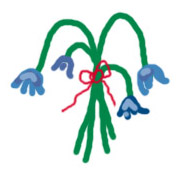Creating successful Hubs

Nearly everyone would like their Hubs to be more successful, interesting, and widely-read. Discover some easy tips to make your Hubs take off, get read, be of value to people, and reinforce your own financial and literary success.
Write about something worth reading
This has got to be one of the most important points to Hub writing, and writing in general. Everybody who cares how funny the Simpsons was last night has either seen it, or has it on TiVo. Write about something that people will actually want to click on and read an entire article about. Something that will improve their lives in some way. I don't personally care about who the latest celebrities have been seen running around with, and I'm not going to sit down and read an article about it, because it's not something that matters to me. If it matters a lot to you, odds are you're someone who'd love to know why your life isn't working, and how to make it better. There's a food-chain when it comes to writing and sharing ideas, and it isn't your HubScore. It's who can write information that most people need, and consistently provide that content well. New approaches to fix huge problems that most people have, for example, are going to be a lot more successful than finding out the latest celebrity gossip. Because these are things that people actually want to know.


Write about what you know
If you've lived in the States your whole life, writing about haute cuisine in Uruguay probably won't turn out very well. By extension, consider what you're good at, and what you know a lot about. A common problem is that what most Americans know about is all the same stuff, like Simpsons and American Idol, and few people who don't have that information actually want it. This is more due to the fact that most Americans have no lives, and aren't generally motivated to do anything original anymore. So, the Demand for that information is very low. That's when you might want to take a look at your life, and decide to break away for a bit. Where I grew up used to be nothing but farms and orchards, row after row after rown. Now, we have suburbs there instead... row after row after row. People farms. You might be seeing the problem with sharing worthwhile content if you're finding that you don't have any. Could indicate something bigger, don't you think? Consider getting into something new and different. You'll be happier for it. Otherwise, look at your interests and find what's the most unique, worthwhile and obscure. What do you have that's in Demand, that most people don't already have? Talk about it, and share your information and experience with people who want it. It does no good to plow through Wikipedia articles researching, just to write about something you have no knowledge about. Share who you are, and if you don't know who you are and what sets you apart from everyone else, now is the perfect time to discover it.

Keep a notebook handy
Keep a way of jotting down ideas for articles, and even writing them, handy in your everyday life. You don't have to be at your computer to be able to write Hubs - you can be at the beach. Or the park. A coffee-shop, or even camping. You can develop your ideas, even on your lunch hour, and come back and scan them into a text file (at your local print shop, if need be). I was so glad when I realized this, especially living in California with the weather being so nice. Missing out on the great sunshine, I always feel like I'm wasting something somehow. But now you don't have to, and you can keep your ideas for Hubs on paper so you won't forget them later. If I hadn't jotted my Hub ideas down, you wouldn't be reading this Hub. I would have forgotten the idea.
You'll also notice yourself getting used to thinking about your writing in your spare moments... those wasted moments while you're waiting in line for your groceries or at your bank. And it's a great feeling to know that you'll finally be putting those moments to good use, and get paid for them rather than decide which impulse candy to buy or being appalled all over again by the tabloids and womens' magazines.

Write well
Bad grammar and typos will make anybody tune out. Avoid edits that will break a sentance, like "Mystery Science Theater was one of the a great experience for me." This can happen a lot when you edit, so be sure to go back and check your writing for typos, lousy formatting, and grammar mistakes before you publish. This isn't an AOL chat room, people don't want to read, "Newayz I think it's great 2 b on HubPages msg me ok lol" and they'll tune right out. They'll also remember not to read your other Hubs when they come across them. Also remember to add some zip, zest, pep and astonishingly-descriptive words like a good chef will add seasoning to a meal. They're not the whole meal, and you wouldn't want them to be. But most dishes wouldn't be half as delicious without seasoning, and plenty of Hubs would do a lot better if people applied themselves to their writing ability. (Metaphors like my chef metaphor are also great for getting ideas across in a way that's easy and pleasant, playing a fun game of "Let's Pretend" with the reader for a moment to establish parallels. You're not going to be around when they read your Hub, so you'd better make sure they can decipher what you mean, using examples and metaphors.)
Be relevant
If people are going to read your Hub, you'll want to make sure it's about something they're looking for. One way to do this is to check out what people are searching for the most, and pick from that. Many search engines keep track of what people search for, and I use Google's AdWords Keywords Tool to find that. Try it out! Try typing in the phrase "how can i" or "how do i" in quotes, and seeing what comes up. This is information people on the internet are actually looking for, and much of it is going to keep coming up year after year. Think of it as an internet-wide version of HubPages Requests. While you may not want to write a Hub about "how can i keep from singing lyrics", "how can i check my credit" and "how can i tell if my dog is pregnant" are sure-fire winners, now and in the years to come. And odds are, you never would have have thought to write a Hub about them.
Write titles that sizzle
One mistake I kept making was answering Requests, and leaving the titles alone. ("Terrific. Now I have a Hub titled, `how much riccotta should i put in my lazanya pls hurry its cooking alredy'. That one's a surefire winner down the road. People will be tripping over themselves to read it.") It took me about a day to realize that I could edit the titles of my Hubs (I thought the title was the URL, so it couldn't be revised). Then I went back through the twenty or so Hubs I'd written in my first day, and made sure they were more appropriate for everyone. And that they would grab people's attention, while still being honest about my Hubs.

Create content that lasts and lasts
Writing about short-lived things, or trends that will soon die out, is a great way to not get read. Writing about current events, like a sports game or a political phenomenon, will have people stop going to read that Hub, and it will get lost among the other pages on the internet. Heck, even mentioning something short-lived is usually dating yourself, when someone reads about a news event or election a year from now in your Hubs. Avoid chasing after trends, and publish worthwhile content that lasts. HubPages CEO Paul Edmondson wrote a Hub about writing "Evergreen Content". This is content that people will come back to year after year, and will be useful to people on a consistant basis. This means that people will continue to read your Hubs for years, and you will keep generating AdSense impressions if you use them. If not, it's still true. You'll keep providing worthwhile, needed content to people, consistently, for years. For whatever reasons you're writing your Hubs, it's a great idea.
Provide a unique Summary
Let's say you're reading through a list of Hubs, and you see a Hub that seems interesting to you. You go to read the summary, and all the author has said in it is essentially rephrasing the information you already got from the Hub's title. You have just given the Hub's author two chances to impress you enough to make you want to read their Hub: the subject, and the summary. They've used one of those chances to give you information, and wasted their other chance by repeating that same information. Now you have half as much information about their Hub as you could have - and half as much information as some of the other Hubs provide, by adding a specialized summary for their prospective readers. And the fact that the author has wasted one of their chances to inform and impress you probably means that either they're not very good at authoring Hubs, or their not very good at writing in general. So chances are, you're going to pass right on by their Hubs and read a Hub that has impressed you more. Something more worthwhile. When you're writing Hubs, be sure to hit the Edit button at the top of the screen, and give your Hub its own summary. Make it grab the reader. Now's your chance to write something that will "sell" the Hub to the reader. Tell them why they want to read your Hub! If you don't, HubPages will just take the first paragraph you've written in your Hub, and use some of that for the Summary. And that's usually bad. Opening paragraphs are generally re-statements of the Hub's subject, and nobody trying to decide whether or not to read it needs to hear it again, they just picked up that much from the Hub's title. Show your readers why they want to read your Hub, and more of them will.
Add pictures and links
This tip goes right along with the last one. When you upload a picture, it shows up in place of your user image when your Hub shows up in a list. Ain't it great? Now when a user wants to consider whether or not to read your Hub, it will be two plusses for you. First, it will "shore up" the idea of your Hub speaking to your topic, and if that topic is something they're interested in they'll be drawn to read it. Secondly, you've just showed them that you know what you're doing. That's always a plus, because it reassures a reader that they won't be wasting their time reading your Hub. And upload images that are appropriate to your topic all throughout your Hub, too. That will break up the visual monotony, and encourage your reader to keep reading long articles. Your Hub probably isn't the first Hub they've read today. It's a lot to sit there and go through, reading a bunch of Hubs. You can show you care about them by making it easier and more interesting. It's very easy to do; you can put your article in multiple Text Capsules and put Photo Capsules in between them. Also add links in your Hub where appropriate. It will break up the monotony, and allow them to read more about it. If you can link to another Hub you or someone else has written, all the better.
Offer affiliate links
HubPages offers AdSense, Amazon, and eBay affiliate links to help you make money talking about the things you do best. If appropriate, use them! I can't use Amazon, because its system doesn't work with my unique status in law. But chances are, you can. You can put capsules for relevant books and eBay items in your Hubs, and earn commission on them. You'll get commission based on people who'd like to buy things you're talking about. It's a simple thing, but lots of people forget about Amazon and eBay because it involves another process, signing up with them and deciding what products to add. So it's worth mentioning again.

Group your Hubs together in ways that make sense
One of the less-touted features on HubPages is the ability to create groups for your Hubs. If you're writing about what you know and love, usually most of your Hubs can be grouped together in some way. By creating a group, you can daisy-chain your related Hubs together for your readers, allowing them to easily read through them. If they're interested in one Hub you've written on a subject, they may very well be interested in the others as well. You already have someone who's just decided to read your Hub, who evidently has an interest in the subject matter you're offering them, and if you've done your job right you've managed to impress them with your abilities, experience and writing. When they've reached the end of a Hub that you've placed in a group, they'll see options to read other Hubs in that group. Your reader will notice these, and make a decision: "Will I go look for other Hubs, or will I read more of these?" The links to those Hubs in your group are right there in front of them, and if you're good and the subject matters to them, they'll decide not to take their chances on going through lesser-quality Hubs to find something that interests them, but will read yours. Your Hubs' titles should be general and matter to a lot of people interested in the general subject, and where applicable you should give your Group a name that will display before the title of the other Hubs. This will strike a chord with your reader, since they're obviously interested in the subject - or something close to it - or they wouldn't be there. More of your Hubs will be read, and you'll also generate more AdSense impressions if you're using it.
Link to your Hubs on your blogs, and elsewhere on the internet
So you're writing about things that matter to you in your life, and most of it has some connection. You'd like your Hubs to get more exposure. Where better to show them off than on your blogs? Consider: not only will more people view them, you can create Hubs on topics you're interested in and probably talk a lot about. When a conversation or blog post opens on a subject like that, you probably don't want to have to rehash the same information that you've already put into a Hub. So link to it! Readers will be able to reference your information, you won't have to explain it all over to them again, it will generate more Hub views and linkbacks, and blog readers will be able to discover HubPages and get it noticed. You can also go back and add links to your new Hubs in your old ones, once you've written about something new. And if you're using Squidoo, or posting in a lot of forums, you can create a mini-network of links referring users to relevant content among all of your pages on many sites. What could possibly be better? Only world peace, good government, social functionality, and love throughout all mankind. Oh, and fresh lasagna.
Post referral links where appropriate
Here's a concept most people don't think of using. You author Hubs, and perhaps you do quite a lot of it. You spend your time sharing ideas that readers will eventually see. So why wouldn't you check out various online referral programs, familiarize yourself with products and services that are relevant to your interests, and share links to them where appropriate (and in moderation) when you discuss those subjects on your Hubs? If you've just introduced people to something, and they're interested, they'd love to know where they can utilize it. Offering a referral link in your Hubs will generate revenue for you when someone takes them up on that product or service, and everyone's happy - provided you don't overdo it, and let pursuit of the almighty dollar, deutschmark or yen override your basis for writing Hubs that provide value. Keep things in perspective, and create win-win situations for everyone.

Offer your services to the reader
This one's beautiful, and few people think of doing it. So you're writing about something you know about, and your reader presumably doesn't - but is interested in. While you're using referral links to plug someone else's product... what about promoting your own services? If you're writing a Hub about fashion because you know fashion, and your reader doesn't but wants that benefit, why not offer your experience in that area to them? Let them know that you provide freelance services in whatever it is you do, and offer them the option of sending you a message to consult for it. You can consult by phone, e-mail, or internet chat. They can get the benefit of your experience with the subject, customized to their own personal situation, goals and needs. And they can compensate you monetarily for it through PayPal. Everyone comes out a winner, and just like with residual AdSense impressions that accumulate over time, you'll have readers discovering your Hubs months and years later and contacting you. You'll have supplemental consultation opportunities landing right in your mailbox, because what you're providing is worthwhile. If you have many interests and a lot of Hubs, this can accumulate quite easily. One day you may have a fashion consultation scheduled, and the next, a consultation on what to plant in a garden or how to pull cable through a house to wire it for broadband. What a beautiful idea! People who read HubPages have the ability to hire freelance experts on the cheap, and you'll get paid just for sharing your experience and thinking to offer it to people. Providing your information and experience, personalized to the reader's needs, isn't about taking advantage. It's a way to make use of what HubPages is, by offering readers specific information, experience and advice for their own specific needs, in ways they can't get through Google or Wikipedia. This could really take off - the best way to make money on the internet is to offer value to people, and this is a phenomenal way to do it. You may also want to quickly create a website or blog about it, and include a link to it when you offer your services at the end of your articles.
Draw readers from the general to the specific
Odds are you have some knowledge that everyone would be interested in reading about, and a few areas of specialized knowledge that only a few people would be interested in reading about. Or more precisely, a few areas of obscure interests that lots of people would want to know more about, but haven't even heard of. And to you, it all interrelates in some way. You can interrelate it on your Hubs the same way, and invite people reading your more generalized Hubs to learn more about the lesser-known areas of life by mentioning them, and adding links where appropriate.
If you know, for example, a lot about something obscure but interesting like factory working conditions in the Industrial Revolution and what the economy was like as a result, creating a Hub about it all by its lonesome probably won't attract many readers. It's too obscure, and few will find a reason for it to matter enough to them to read about.
But let's say you're also interested in politics and economics in general. You could start Hubs on fair treatment in the workplace, and how to solve common problems workers frequently encounter. Those would draw a lot of interest; people want solutions to the situations they're having in life. Then, you could write a paragraph about how important the needs for standards in business practices are, and mention what can happen when they're not in place... or used. You can point out the sliding situation in industrial practices, and mention what it will lead to if nobody does anything about it... and link it to your Industrial Revolution page. Now your readers are interested, because you've given them a reason to be. You've shown them why it's important. Now they care, and chances are they'll take you up on the opportunity to read an easily-digestable article on the Industrial Revolution. Congratulations, your Hubs on obscure topics will get more readers, and you'll be giving people information about politics and history that everybody needs - to live successfully in today's world - because now they see that it matters.
Play with your tags when you're through
It's not obscene. There's no point in writing a Hub that can't be found. Consider what you've just written, and add tags that are appropriate. Then, add some more. These tags will assist readers both on and off HubPages to find, access, and read your work. And ultimately you both want that. Do be careful not to become obsessed with it, though. Like people who optomize the heck out of their webpages so they'll appear first on search engines, there's only so much mileage you can get with any page. The time you spend trying to get your tags perfect, you could be authoring a whole new Hub instead. Keep it in proportion, but do take a moment to make sure your Hubs can get found.
It will also play a large part in determining what ads appear on your Hubs, if any. Making sure that ads for hubcaps don't show up when a page is tagged with the word "hub", for example, is usually a good thing for both you and your reader. It means the ad space is going to go towards something more relevant to the topic, and the reader is more likely to find something listed that's worthwhile to him. This improves his day, as well as your click ratios for AdSense.
Hitting your stride
After a while, you'll establish a successful formula for writing Hubs, and you'll get used to using it. Incorporating various ideas and approaches to meet the needs of the Hub you're writing will become easier and easier, so the tough part is coming up with the ideas in the first place. I've shared them for you here, and hope you've found value in reading this. Feel free to add more ideas here in your Comments, for other readers who visit. I wish you all due success in making your Hubs terrifically successful for you and your readers. Have fun, and godspeed.







![WAYS OF MAKING MONEY ONLINE [HUBPAGES]](https://usercontent2.hubstatic.com/16299867_f120.jpg)
